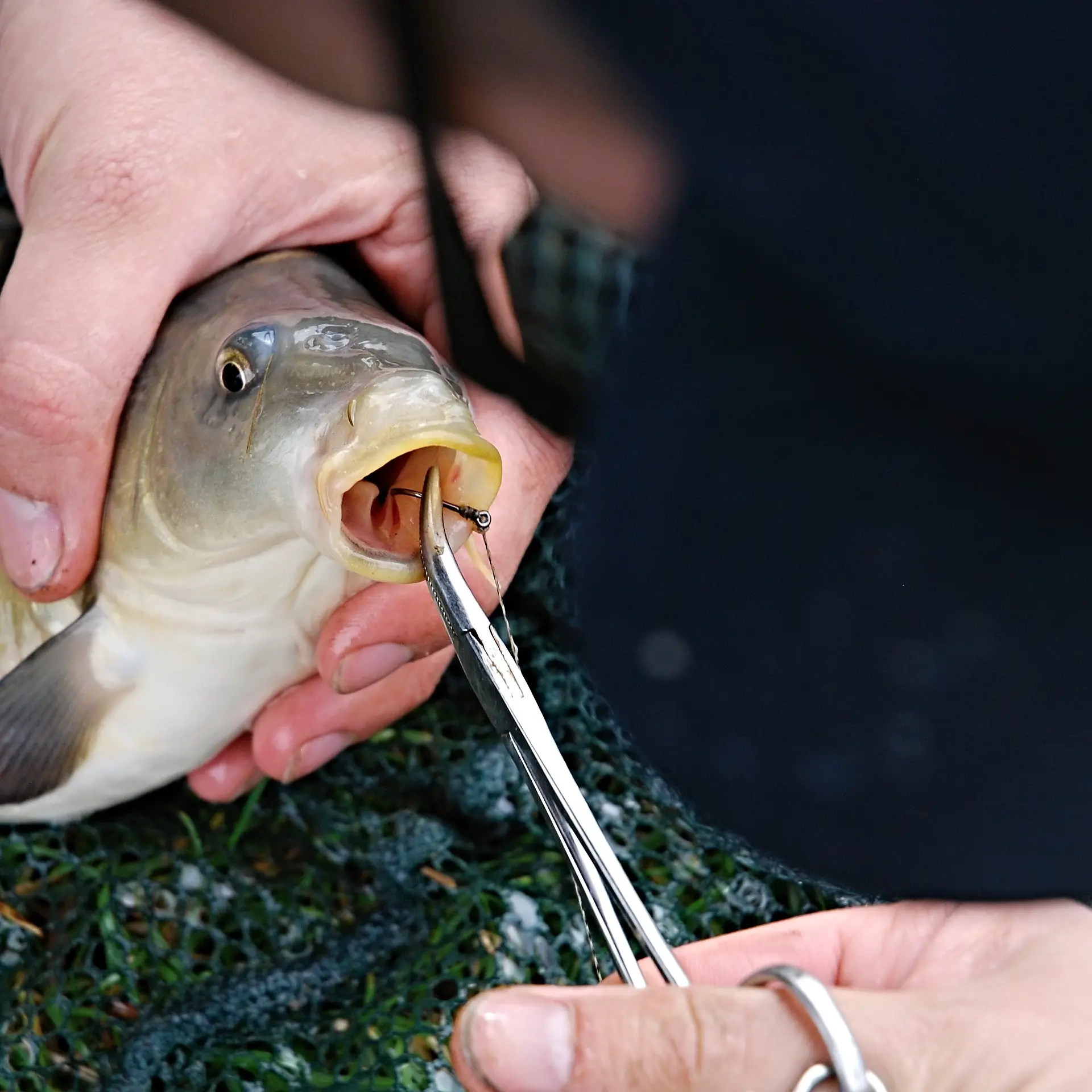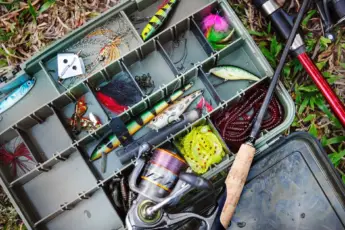Fishing in North Carolina, South Carolina, and Georgia is excellent for anglers of all ages and experience levels. Fish are plentiful in these three southern states, whether fishing from the shore or boat on a lake, river, stream, reservoir, coastal waterway, or open ocean. Hooks are an essential part of catching fish, and unfortunately, the hook becomes lodged deep in the stomach. Here is what you need to know about gut hooked fish.
What Does Gut Hooked Mean
Often, people are confused as to what does gut hooked mean? To answer the question, it is a fish that has been hooked in the gut. The hook becomes embedded deep in the throat of a fish and the stomach. The vast majority of catches are hooked in the lips or vicinity of the lips compared to the gut.
A second way that you may better understand gut hooked meaning is swallowing the hook. Anglers who fish consistently have hooked fish deeply. Unfortunately, gut hooking is not avoidable. When hooks penetrate deep into a fish’s gut, they are at risk of severe injury or death. However, efforts can be made to reduce the likelihood.
Why Do Fish Get Gut Hooked
There are two primary reasons why fish become gut hooked. Consider these two causes before casting a line the next time you head on a boat to the shoreline, pier, or dock. Remember, we can make efforts to avoid killing fish unnecessarily.
Slack Lines
The primary cause, whether fishing in saltwater or freshwater through Georgia, South Carolina, or North Carolina for hooking fish deep within the gut, is slack fishing lines.
Slack fishing lines allow the fish to chew slowly. Fishing bait which is chewed, slowly moves the hook from the mouth to the throat as is standard for eating.
The hook becomes lodged deep in the throat without the angler noticing a bite resulting from a slack line. Fish lie dormant on a swallowed hook for extended periods before the angler realizes a fish is on the line. Once pulling tight, the fisherman feels the tug at the end of the line, but the damage is done.
When fishing live, dead, or artificially scented baits, eliminate slack to notice every bite from a fish.
Circle Hooks Versus J Hooks
Circle hooks are more widely used today when compared to J hooks for a multitude of reasons. J hooks are more dated in technology due to design and further increase the chances of gut hooking fish.
A J hook has a straight shaft that slides more quickly down the throat of a fish when compared to the wide bend of a circle hook. The straight shaft increases the likelihood of hooking a fish in the gut.
Secondly, circle hooks are designed to rotate in the fish of a mouth when reeling. In addition to the rotation, the width of the bend prevents the hook from venturing far beyond the mouth. A circle hook is not set by pulling but instead reeled quickly.
Use circle hooks to reduce the likelihood of hooking a fish in a location that puts it at risk. Some would argue that the fish is being kept for dinner. However, not all catches meet legal size requirements.
Will A Gut Hooked Fish Survive
Most anglers have heard that a gut hook fish will survive because the piece of metal lodged in its throat rusts away.
To answer, will a gut hooked fish survive? Yes, fish can survive when hooked deeply. In situations where the hook is deeply embedded, it is best to avoid further injury by forcefully pulling it free.
The materials in which the hook is constructed significantly impact the rate it decomposes. Stainless steel hooks are designed to prevent rust and take longer to break down than other metals.
Additionally, a lodged hook moves further into the digestive tract finding its way into the stomach. Take into account the diet of a fish. They eat a substantial amount of sharp foods. The sharp foods include spines, shrimp heads, beaked fish including ballyhoo, and more.
Regarding what to do with a gut hooked fish, avoid digging deep in the mouth and causing internal damage. The gills, in particular, are fragile and easily torn. When gills are torn from attempting to pull a hook free, the chances of survival are significantly reduced.
We get it; you want your tackle back to avoid losing what you paid for and needing to retie a new hook. However, the fish is best left alive to enjoy catching another day. To best prevent tackle loss and causing significant injury, you need to know what to do if you gut hook a fish
Use Your Best Judgement The Next Time You Gut Hook A Fish
Saltwater and freshwater anglers in Georgia, South Carolina, and North Carolina, gut hook fish accidentally. Take steps to help reduce the chances. Bring along a pair of needle-nose pliers to remove lightly stuck hooks but never forcefully pry a deeply embedded hook free from a fish being released. At times you may need to leave hook in fish. It is critical to respect the wildlife because you are spending time on the water for a purpose. The purpose is to either have fun or catch a meal or a combination of the two.






